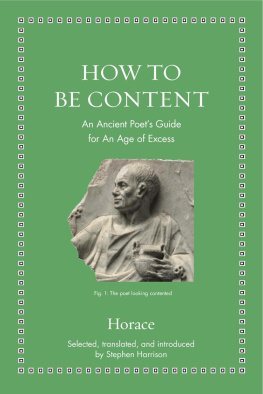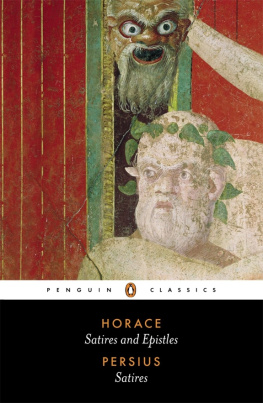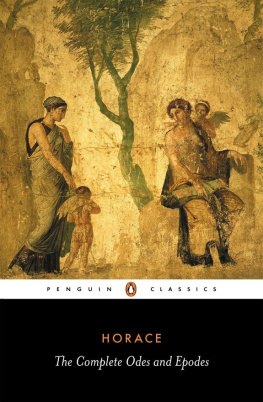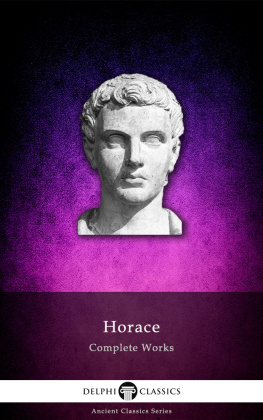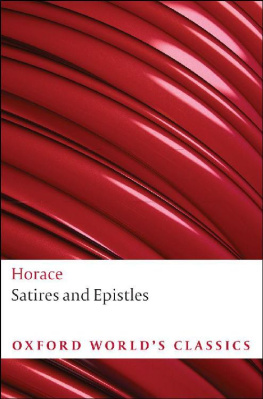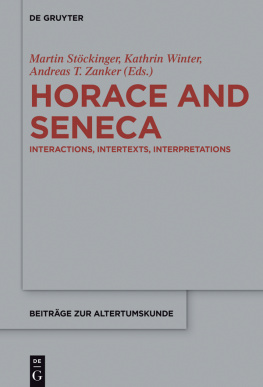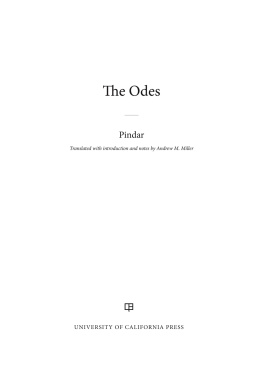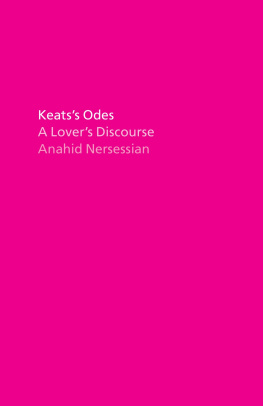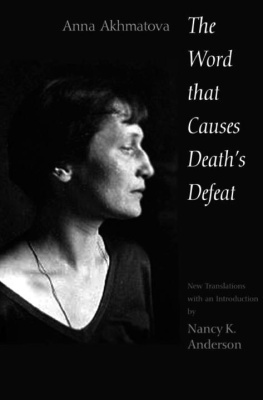Cambridge Greek and Latin Classics
General Editors
P. E. Easterling
Regius Professor Emeritus of Greek, University of Cambridge
Philip Hardie
Senior Research Fellow, Trinity College, Cambridge
Richard Hunter
Regius Professor of Greek, University of Cambridge
E. J. Kenney
Kennedy Professor Emeritus of Latin, University of Cambridge
S. P. Oakley
Kennedy Professor of Latin, University of Cambridge
CAMBRIDGE UNIVERSITY PRESS
Cambridge, New York, Melbourne, Madrid, Cape Town, Singapore, So Paulo, Delhi, Tokyo, Mexico City
Cambridge University Press
The Edinburgh Building, Cambridge CB2 8RU, UK
Published in the United States of America by Cambridge University Press, New York
www.cambridge.org
Information on this title: www.cambridge.org/9780521587662
Richard F. Thomas 2011
This publication is in copyright. Subject to statutory exception and to the provisions of relevant collective licensing agreements, no reproduction of any part may take place without the written permission of Cambridge University Press.
First published 2011
Printed in the United Kingdom at the University Press, Cambridge
A catalogue record for this publication is available from the British Library
ISBN 978-0-521-58279-7 Hardback
ISBN 978-0-521-58766-2 Paperback
Cambridge University Press has no responsibility for the persistence or accuracy of URLs for external or third-party internet websites referred to in this publication, and does not guarantee that any content on such websites is, or will remain, accurate or appropriate.
Preface
This commentary has been some time in the making, in part thanks to recurring administrative duties. That has perhaps been for the good, in that my thinking about the poems included has evolved in what I hope will prove to be productive ways. The Carmen saeculare and book 4 of the Odes are not easy to situate in their political and aesthetic contexts. Fundamental issues of tone, purpose and meaning are still under debate, in spite of the fact that the Horace of the 30s and 20s BCE has seemed perhaps the most familiar of the Augustans. The poems of C . 4 have seemed at the same time, to many readers, to represent a falling away from the first collection. It has therefore been useful to spend some time, while engaged on other projects to which inclination or duty consigned me, to reflect about these poems, which have to me become more interesting as I kept their company.
It has been my fate now for the second time to be completing a commentary on the same text on which other commentaries were imminent or recently published. I received the Italian commentary of Paolo Fedeli and Irma Ciccarelli ( Q. Horatii Flacci Carmina: Liber IV , Florence 2008), after I had finished a penultimate draft of my commentary. At the same time Philip Hills generously sent me an electronic copy of his impressive 2002 Cambridge Ph.D. dissertation on Odes 4.1, 2, 10, 11, 15. I have consulted both but ended up not really noticing either, in large part through a concern that the commentary was getting somewhat detailed for the present series, particularly since the size of the two commentaries in question was considerably greater than mine. Fedeli and Ciccarelli usefully give full references to secondary literature before the commentary on each poem, where I have been more selective. Hills sees in Odes 4 a much greater presence of Ennius than has previously been detected. As appears to be the case with my Georgics commentary (Cambridge 1988) and that of Sir Roger Mynors (Oxford 1990), it is my hope that the two commentaries on Odes 4 now available, and the third soon to be available, will be of use to students and scholars, who have been without modern commentaries for so long.
I acknowledge support from the Loeb Classical Library Foundation for financial help that enabled my first full year's leave in 20067, particularly since I was therefore able to take up a Visiting Fellowship, in Michaelmas, 2006, in the stimulating surroundings of All Souls College, Oxford, which housed, fed and entertained me in the hours I was not working exclusively on the commentary in the equally interesting setting of the Lower Reading Room of the Bodleian. I am particularly grateful to Dean of Visiting Fellows, Jim Adams, for help, encouragement and friendship towards a fellow antipodean. Over the years I have received generous help and suggestions from friends and colleagues too numerous to recall, but I mention a few who read and reacted to the commentary in a complete draft in 20089. For their the vigilance, intelligence and generosity I thank, again, Jim Adams, Stephen Harrison, Philip Hardie, John Henderson, Peter Knox, John D. Morgan and David Ross, who read the entire commentary. Nicholas Horsfall helped with comments on the Carmen saeculare . As a result of this assistance the commentary is changed from what each of them then received, here and there doubtless in ways of which any given one of them might not approve. Lizzie Mitchell, who read parts of a draft, also sent me her excellent Cambridge M. Phil. thesis (to which I refer sparingly ahead of publication plans), while Tom Zanker gave good comments on a draft of the Carmen saeculare commentary. David Kovacs commented on a draft of C . 4.8, on which he subsequently published an interesting article, included in my bibliography. At a workshop on commentaries held at Corpus Christi College Oxford, on 14 March, 2009, I was fortunate to receive helpful reactions to my commentary on C . 4.15 from Stephen Heyworth, Gregory Hutchinson, Bruce Gibson, Robert Maltby and others who spoke at that event. The book has been much improved by the expert, perceptive and thorough copy-editing of Andrew Dyck. Thanks are also due to Tom Keeline, whose proofreading led to a number of improvements. Finally, my deep gratitude to my wife, Joan Thomas, for reading the entire commentary, and for her support throughout its composition, as throughout all else.
R. F. T.
17 May 2010
Abbreviations
In abbreviating I generally follow the practice of the OCD . H.'s works are cited as AP ( Ars Poetica ), C . ( Odes ), CS ( Carmen saeculare ), Epod . ( Epodes ), Epist . ( Epistles ), S . ( Satires ). In citations of individual lines from C . 13, C . is generally omitted (e.g. cf. 2.3.14; 3.1.4), while C . 4 is omitted in citations from that book (e.g. cf. 5.67, 10.4). 22 means see p. 22, and refers to the introduction of this volume, while see 5 intro. means see the Introduction to C . 4.5.
Adams
J. N. Adams, The Latin sexual vocabulary (London 1982).
AE
L'Anne epigraphique (Paris 1888).
Axelson
B. Axelson, Unpoetische Wrter. Ein Beitrag zur Kenntnis der lateinischen Dichtersprache (Skrifter utgivna av Vetenskaps-societeten i Lund 29, Lund 1945).
BA
Barrington atlas of the Greek and Roman world , ed. R. J. A. Talbert (Princeton and Oxford 2000).
Bentley
R. Bentley, Q. Horatius Flaccus , 3rd edn., 2 vols. (Berlin 1869).
BNP
M. Beard, J. North, S. Price, Religions of Rome. Volume 1. A history (Cambridge 1998).
Bo
D. Bo, Lexicon Horatianum , 2 vols. (Hildesheim 196566).
Brill's New Pauly


